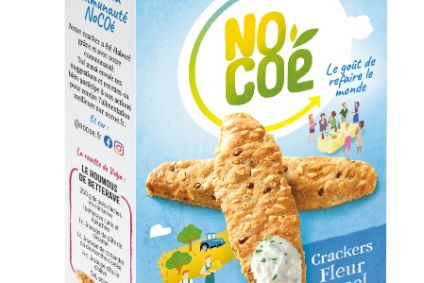Mondelez International has a released a carbon-neutral cracker brand and GlobalData Consumer suggests its recent surveys indicate there could be a ready market for the product.
Mondelez International’s innovation hub, SnackFutures, has developed a carbon-neutral brand dubbed NoCOé with an aim to inspire the next generation of consumers. And it could just work.
The product itself, a cracker brand, represents a new dimension of product development from inception to completion for multinational food-and-beverage firms, as sustainability is increasingly brought to the forefront of product innovation.
And this is partly due to consumer demand, with the Covid-19 pandemic raising awareness of such issues. In fact, as per GlobalData’s latest Covid-19 tracker survey, published on 7 December, 48% of global consumers consider the reduction of their environmental footprint to be more important now as a result of the pandemic, and this is largely driven by Gen Xers and Millennials.
Moreover, another question that was part of our 7 December tracker looked at how ethical claims affect whether a consumer chooses to buy a product.
Some 43% of those surveyed at least said the claims “often” influences consumer purchasing, with an overwhelming majority of 76% indicating the claims at least are “somewhat” a factor.

US Tariffs are shifting - will you react or anticipate?
Don’t let policy changes catch you off guard. Stay proactive with real-time data and expert analysis.
By GlobalDataCompany-wide, Mondelez has set itself ambitious targets to tackle its own carbon footprint. The US snacks giant has pledged to reduce its global CO2 output by 10% by 2025, as well as ensure 100% of its packaging is recyclable and labelled with recycling information.
Mondelez is not alone in its goals, with most other major multinational FMCG manufacturers committing to a number of sustainability targets. The industry as a whole is increasingly prioritising sustainability as part of its modus operandi.
Nevertheless, Mondelez’s new brand shows another dimension of sustainability initiatives. When developing products, multinational manufacturers are no longer just seeking to improve one facet of a product, such as the use of sustainable packaging.
Rather, the development and launch of NoCOé suggests the future of sustainability in the consumer industry could be based upon the scientific calculations of carbon output throughout the whole production process, from the procurement of raw materials and ingredients, all the way up to store shelves.
The challenge for Mondelez over the next few years will be replicating this work across a number of brands. Can it launch more new products in this way? How will it look to make its mega brands more environmentally-friendly?
Moreover, the success of NoCOé will in part depend, too, on the age-old characteristics of a new food product – value and taste. Mondelez trialled NoCOé in 100 stores in Paris with three varieties and has said it saw “consistent growth over seven months, in particular among the premium aperitif snack consumer”, and, although they did not specify how much growth, there has clearly been enough there to give the company confidence the brand is ready to scale up.
Our data suggests environmental concerns are becoming a growing part of that value equation for consumers. And, as sustainability increasingly becomes an important driver of consumer behaviour and therefore sales, all multinational manufacturers will be pressed to find new and wide-reaching innovations that can improve their carbon-footprint.





